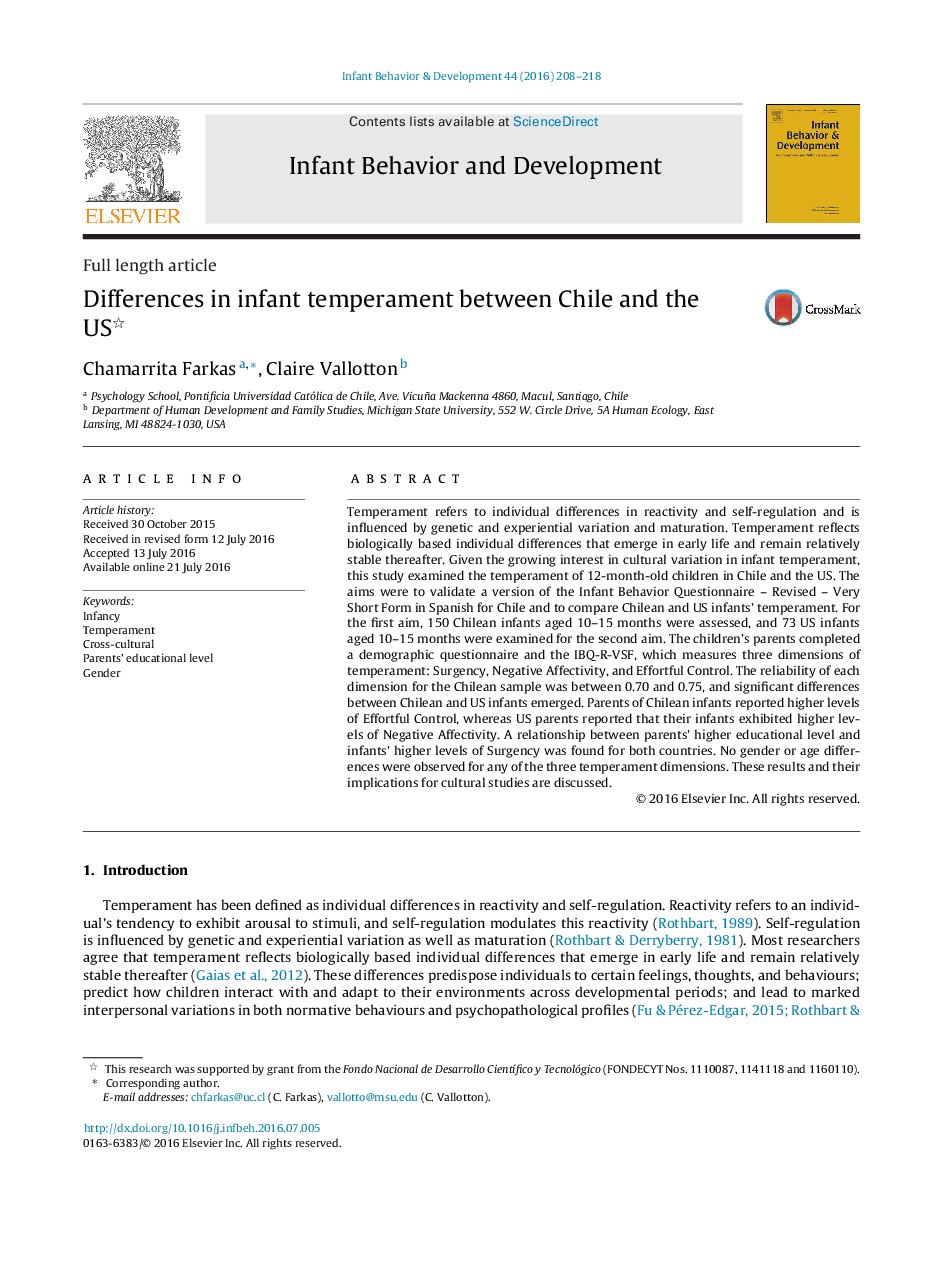| Article ID | Journal | Published Year | Pages | File Type |
|---|---|---|---|---|
| 7273240 | Infant Behavior and Development | 2016 | 11 Pages |
Abstract
Temperament refers to individual differences in reactivity and self-regulation and is influenced by genetic and experiential variation and maturation. Temperament reflects biologically based individual differences that emerge in early life and remain relatively stable thereafter. Given the growing interest in cultural variation in infant temperament, this study examined the temperament of 12-month-old children in Chile and the US. The aims were to validate a version of the Infant Behavior Questionnaire - Revised - Very Short Form in Spanish for Chile and to compare Chilean and US infants' temperament. For the first aim, 150 Chilean infants aged 10-15 months were assessed, and 73 US infants aged 10-15 months were examined for the second aim. The children's parents completed a demographic questionnaire and the IBQ-R-VSF, which measures three dimensions of temperament: Surgency, Negative Affectivity, and Effortful Control. The reliability of each dimension for the Chilean sample was between 0.70 and 0.75, and significant differences between Chilean and US infants emerged. Parents of Chilean infants reported higher levels of Effortful Control, whereas US parents reported that their infants exhibited higher levels of Negative Affectivity. A relationship between parents' higher educational level and infants' higher levels of Surgency was found for both countries. No gender or age differences were observed for any of the three temperament dimensions. These results and their implications for cultural studies are discussed.
Related Topics
Life Sciences
Neuroscience
Behavioral Neuroscience
Authors
Chamarrita Farkas, Claire Vallotton,
